VOL- 5, ISSUE- 2, PUNE RESEARCH WORLD (ISSN 2455-359X) JIF 3.02
5.2 WORLD
Area of Article : ALL
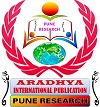
VOL- 5, ISSUE- 2, PUNE RESEARCH WORLD (ISSN 2455-359X) JIF 3.02
5.2 WORLD

VOL- 5, ISSUE- 2, PUNE RESEARCH WORLD (ISSN 2455-359X) JIF 3.02
5.2.1 WORLD

India has a highly complex and colorful social
mosaic. Kumar Vikal’s poetry is a record of intense inner struggle, expressed
in the idiom of radical social change, ends its journey at a cool interface
with death. Vikal makes his poetry special. It presents to us the story of the
desire to stretch out of the lower middle class limitations to a broader social
vision. In this process many Third World realities find their way into his
poems. He also introduces a poetic style which can only be of the language of
the oppressed. Kumar Vikal was a poet, who had been widely accepted as a major
voice of his generation. It should be said that Vikal’s poetry enriches this
particular poetic space. It provides it with a different language, a different
idiom. This idiom is concrete, earthy and local and for all reasons, Kumar
Vikal can be called a son of the soil. Indian Poetry in the regional languages,
especially Hindi Poetry, responded sharply to such acts of insanity. Kumar
Vikal’s poems were basically attempts at showing compassion with the
emotionally ravaged existence of people who experienced partition.
Keywords: Social change, social vision, struggle, discrimination, conflict.
VOL- 5, ISSUE- 2, PUNE RESEARCH WORLD (ISSN 2455-359X) JIF 3.02
5.2.1 WORLD
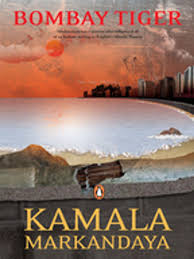
Kamala Markandaya, author of a great novel Nectar in a Sieve, She
published ten novels. This novel is the last of which appeared in 1982. For the
next two eras, till her death in 2004, she lived a life of secrecy in London
outskirts. But she had not stopped writing only after her death, her daughter
discovered the finished type set of a new, novel: The Catalyst: Alias, Bombay
Tiger. This paper is an attempt to study the cultural life in Kamala
Markandaya’s Bombay Tiger. Being a post-independent Indian novelist, Kamala
Markandaya has personally portrayed Indian social, cultural and political life
through her novels. She has reflected these aspects in her novel Bombay Tiger.
Her description of cultural life is based on carefully observed traditions and
portrayed cultural values and ideas. After the death of Kamala Markandaya her
daughter Kim Oliver found and it was published posthumously with the title
‘Bombay Tiger’ in 2008. Charles R. Larson, a close friends of Markandaya and
Professor of Literature, American University, Washington, DC has written an
introduction to novel Bombay Tiger (2008) where he writes: Reading Bombay Tiger
twenty years after Kamala Markandaya began writing the novel is a kind of
exposé for what it says about modern India” (Larson xii). Even though
Markandaya lived in abroad she had a touch with the India. She reads English
newspapers about the information of India in particular.
VOL- 5, ISSUE- 2, PUNE RESEARCH WORLD (ISSN 2455-359X) JIF 3.02
5.2.3 WORLD
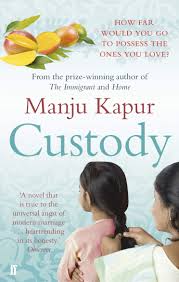
Manju Kapur as well as Anita Desai seems to be on
the quest for order and that means in lifestyles in their Indian English
fiction writing. Their protagonists undergo a struggle to locate their real
self; due to the cramping pressures of anxieties, they seem to have misplaced
it. They revel in a disparity between the better needs of the character’s
internal nature and the unalterable cosmic conditions of existence. Those who
are able to comprehend and surmount their private problems appear to advantage
a healthy vision of existence after a few struggles. Desai stays in most cases
a novelist of moods, of chronic states of mind, of the psyche. Most of her
novels are prolonged narratives of states of being which do now not cohere
right into a plot or shape in the conventional sense, Desai sees the sector in
phrases of enjoy as it emerges from the come across of the self with the arena
out of doors. This depth and density of texture compensates for the absence of
a robust plot or story lime in her fiction. Kapur has carefully located and
portrayed the small human info of actual relationships. The bewildering ranges
of communication and false impression among the characters are depicted almost
fondly, yet contrast strongly with the exhilarating freedom of being in a
dating in which there's authentic intimacy. This paper attempts to expose how
they reap the outcomes they are seeking to advantage, so as to expose no longer
handiest the extremity of the struggling endured with the aid of ladies, but
additionally the deep psychological troubles that beset many humans.
Keywords: Real Self, Conditions of life, States of Mind,
psychological Issues, Real Relationships, Struggles.
VOL- 5, ISSUE- 2, PUNE RESEARCH WORLD (ISSN 2455-359X) JIF 3.02
5.2.4 WORLD
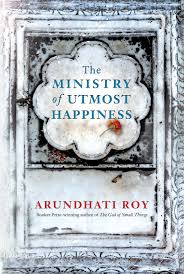
Gender study is one of the most prominent
perspectives of the contemporary literature encompassing the issues of the
women who have felt themselves marginalized and oppressed by the patriarchy.
Women have made great advancement in terms of equality and freedom in the
social and political sphere in present society. They do not have to face so
much humiliation as a transgender is doomed to face - the third-gender doesn’t
belong to either ‘he’ or ‘she’ – the criteria of prominent categorization. The
term ‘third-gender’ has been coined to give them an identity but in spite of
all the efforts made by the authorities, they are still a neglected lot living
in misery. This paper explores the quest for alternative identity and pursuit
of happiness from the perspective of a transgender in Arundhati Roy’s latest
fictional venture ‘The Ministry of Utmost Happiness’.
Key Words: Gender Studies, Transgender, Alternative
Identity, Happiness.
VOL- 5, ISSUE- 2, PUNE RESEARCH WORLD (ISSN 2455-359X) JIF 3.02
5.2.5 WORLD
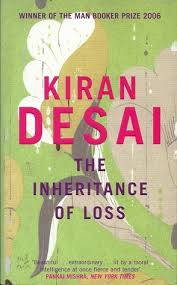
Kiran Desai is considered as a staunch diasporic
writer and a crusader of Feminism. She majorly takes the issues of Indian
migrants and along with she explores the struggle of Indian woman. Her most
endurable novel The Inheritance of Loss gives a portrayal of Gauri’s fight
against patriarchal society. The research paper tries to examine the
exploitation and struggle of Gauri. It also shed a light on Gauri’s
transformation into a self –reliant and independent lady.
Key words: Indian society, exploitation and dignity.
VOL- 5, ISSUE- 2, PUNE RESEARCH WORLD (ISSN 2455-359X) JIF 3.02
5.2.6 WORLD
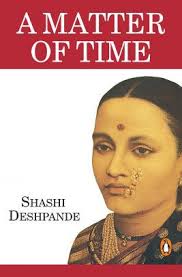
Father plays an essential role in their
daughter’s lives. A daughter relationship with her father is usually her first
male-female relationship. But in Shashi Deshpande’s novel The Dark Holds No
Terrors from the beginning, we find there is no proper communication between
the protagonist, Sarita and her father. She actually, returns being unable to
bear the sexual sadism of her husband. But, she couldn’t express her feelings
or pains to her father. The father is indifferent and not supporting enough
like an unwilling host entertaining an unwelcome guest, like a traditional
Indian father, he enjoys the privilege of being the Master and head of the
family. As we know from Sarita, he is not concerned with the problems of his
own family members. He had always been the Master of the house.
VOL- 5, ISSUE- 2, PUNE RESEARCH WORLD (ISSN 2455-359X) JIF 3.02
5.2.7 WORLD
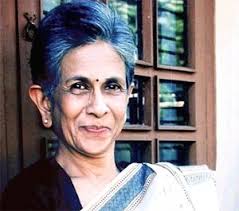
Image of modern voice of female has been explored
by many Indian Women writers. Among them Shashi Deshpande & Manju Kapur,
contemporary woman writers of India, project their protagonists as trapped between tradition and modernity situation which makes
them undergo great mental trauma as they move in a zigzag journey of
self-awareness and their quest for identity. A close study of the selected
novels, reveal as to how well writers have been able to voice their concerns
and how well they have been able to project and portray the shifting paradigms
of the characters feminine sensibility. The present paper is a sincere and
humble effort to explore the evolution of new woman in India after the
partition. The birth of “new woman” in India is a reality, as the concept and
position of womanhood has changed in the modern context. Though this new change
in thought has its variables, the results are relative depending upon the
individual. Through present paper, the researcher has attempted to investigate
a new façade of Indian culture that gave birth to a new woman presented in the
select novels of Manju Kapur and Shashi Deshpande. The new image of women
presented by novelists is ambitious, lustful, power hungry and bold.
Key Words—Evolution, new woman, psychological, Manju Kapur, Shashi Deshpande.
VOL- 5, ISSUE- 2, PUNE RESEARCH WORLD (ISSN 2455-359X) JIF 3.02
5.2.8 WORLD
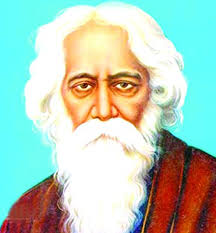
This paper aims to cultivate a positive attitude in the masses through
the spiritual poetry of Rabindranath Tagore to get rid of the fear of
uncertainty, anxiety, loss and death during the threats of this global health
emergency sprung from Pandemic: Covid -19 or Corona Virus. The history of human
civilization had witnessed so many horrible situations when humanity was at the
brink of a holocaust. Millions of people died, leaving the big cities into
cemeteries and lots of people lost their loved ones in these man-made disasters.
Wars, epidemics, famines and draughts remind the survivors of the horrible and
traumatic remembrance of their past. During such crises, people suffer more
psychologically than physically. Fear of illness, personal loss as well as
commercial loss and death haunt them repeatedly. They feel lonely and dejected.
A temporary isolation from social activities to stop them from being a host of
a fatal disease turns them into permanent isolated zombies-like creatures who
are alive but lack sensory balance and do not know what they are up to. Though
no crisis is as strong as to remain in this world for a long period of time,
lack of knowledge of crisis management and aloofness from reality in such times
makes people more pitiable. We can
overcome such situations and threats through alertness, prudence, obeisance and
exposing our attention towards the Ultimate Truth and Reality which means the
cultivation of spiritual insight into us.
Key Terms: Tagore, Coronavirus, Spirituality, Ecology, Resilience etc
VOL- 5, ISSUE- 2, PUNE RESEARCH WORLD (ISSN 2455-359X) JIF 3.02
5.2.9 WORLD
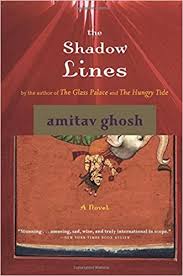
Such a Long Journey and The Shadow Lines are
written by two eminent writers Rohinton Mistry and Amitav Ghosh respectively.
Both the novels deal with the theme of diaspora, partition, belongingness, issues of identity and crisis arising out of
it. The study of the two protagonists in these novels bring out certain aspects
regarding diaspora by the authors. The Shadow Lines deals with the issue of
India- Bangladesh partition and the communal conflict arising out of it and
it’s impact on the common people. It shows the effect of partition on the
common masses who suffer due to the decision of partition taken by the
government. Such A Long Journey is about the diasporic life of a Parsi family.
The protagonist Gustad struggles with the adverse circumstance in his life –
his son's education, the compound wall, the feeling of insecurity in India, etc
and at the end of the novel acknowledges the worth of the life journey which he
undertakes.
Key words- Diaspora, identity, conflict, partition, memory etc.
VOL- 5, ISSUE- 2, PUNE RESEARCH WORLD (ISSN 2455-359X) JIF 3.02
5.2.10 WORLD
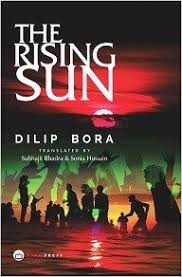
Dilip Bora’s novel ‘Apaharan’, translated for the
first time in English as ‘The Rising Sun’ throws light on a turbulent phase of
Assam involving the demand of political sovereignty. In the build up to this
crisis was a long period of agitation in the state demanding the safeguarding
of the traditional values and culture of the indigenous people of the state,
which were deemed to be at a risk due to the constant influx of people speaking
other languages, viz. Bengali and Hindi in particular. The Assamese culture was
threatened by the growing numbers of outsiders in the state which resulted in
people from different spheres joining hand in a protest. In this period of
agitation, student leaders took the front seat while the movement got
widespread support across the state.
VOL- 5, ISSUE- 2, PUNE RESEARCH WORLD (ISSN 2455-359X) JIF 3.02
5.2.11 WORLD
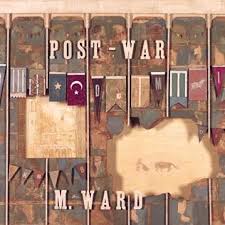
This paper therefore is an attempt to examine how
philosophy and culture has been a work within a variety of consideration and
subjective standpoints. It is a specific type of journey based on ideas and
bitter experiences from the post-war anxiety to the vision of digital utopia.
Chapter focuses on the significant role of philosophic and cultural
perspectives in Lessing’s novels, journals, articles, interviews and critical
narrations presented by philosophers and ideological concepts by Lessing
herself. Major concept of philosophy and dialectics presented by Faucault,
Marx, Thomas More, Freud, Lewis, Idris Shah and Science-Fiction culture match
with the thoughts of Lessing in the present works. This paper also throws
lights upon multi-philosophic and multi-cultural ideologies of post-war era and
their importance in present age of science and technology. Leading arguments
are presented by post-colonial, post-modern and post-war philosophers in the
critical studies of major writers like, Tim woods, Macleod and Leela Gandhi.
Their Purpose is to expand ideas taken from the dead world and evolve them into
utopian concept. Consequently, women writers from diverse cultures created
their literary works for diverse purposes aiming to achieve liberating goals.
VOL- 5, ISSUE- 2, PUNE RESEARCH WORLD (ISSN 2455-359X) JIF 3.02
5.2.12 WORLD

This paper throws light on the mental reactions
of various characters who have been portrayed in the novels Mrs. Dalloway
and Manju where the story is narrated through the memories of
characters. Both Virginia Woolf and
Vasudevan Nair have skillfully employed the Stream-of-Consciousness technique
of communicate rather significantly bringing home the point that “film and
literature do more than share the distinction of being story telling arts, both
come to this propensity naturally.
VOL- 5, ISSUE- 2, PUNE RESEARCH WORLD (ISSN 2455-359X) JIF 3.02
5.2.13 WORLD
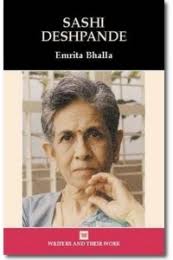
This research paper has been written with an aim
to interpret the heroine Saru depicted
in the novel The Dark Holds No Terrors by Shashi Deshpande who has
emerged as an icon for the young women writers illustrating women sandwiched
between tradition and modernity. She represents Saru as a dominating girl who
does not accept the inequality shown between her and her brother by her
parents, especially by her Mom. She just tolerated the arrogant traditional
orthodox mother Deshpande neatly delineates the Self-will of Saru, who took own
decision for her marriage against her parents. She did her higher education in
medicine and it was the only weapon to safeguard her life even after love
marriage. This neatly analyses how being a woman writer Shashi Despande
portrays Saru who explores the problems a woman faces in day-to-day life, even
it is an arrange marriage or love marriage. Through this, every woman faces
darkness in life, but through their strong personality and self will they just
ignore terror in it.
Key Words : Modernity, tradition,
dominating, Self will, egoist, inequality, terror.
VOL- 5, ISSUE- 2, PUNE RESEARCH WORLD (ISSN 2455-359X) JIF 3.02
5.2.14 WORLD
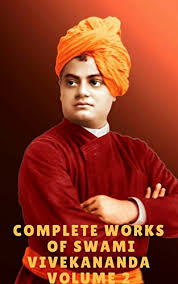
This paper flows with the life of Swami
Vivekananda’s perfect living with the quality of humane and icon of spiritual
voice for the human evolution and freedom of their own with the spiritual
power. He enchanted the values of love, kindness, spirit of humanity, universal
equality, unity and fraternity. Vivekananda wanted to elevate man with the
power of spirituality. Swami Vivekananda was a great intellectual orator and he
dedicated his life to the realization of the Truth. Swami Vivekananda’s
philosophical lectures do provide and present the universal spiritual values
and their rational justification without reference to any particular cult or
creed.
Key Words: Humanity, Spiritual powers, Truth, Faith,
Universal Equality.
VOL- 5, ISSUE- 2, PUNE RESEARCH WORLD (ISSN 2455-359X) JIF 3.02
5.2.15 WORLD

This paper focuses on women in universally
acknowledged author William Shakespeare who was not of Elizabethan age but of
all ages who united the powers and advantages of three great forms, the romance
in verse or prose, pure poetry and drama. It also focuses on the Shakespeare’s
women who are not an isolated phenomenon is their emancipations their self
sufficiency and their evasion of stereotypes by which he realized that most of
the significant questions had to do with beliefs about the nature and positions
of women as well-defining and apparently impregnable as the principles of the
Ptolemaic universe.
VOL- 5, ISSUE- 2, PUNE RESEARCH WORLD (ISSN 2455-359X) JIF 3.02
5.2.16 WORLD
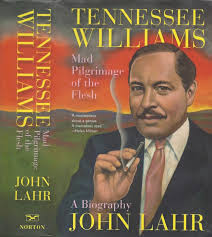
This paper is an attempt to depict sexuality and
dominance of sexual violence as projected in the dramatic world of Tennessee
Williams who is a part of rich and varied literary tradition. This works have
been influenced by his own disoriented life which gets reflected in the traumatic life led by his
characters. This shows how Williams is chiefly concerned with the duality of
life presenting the psychology rather than a philosophy of life.
Key words : Homosexuality, sexual abuses, psychological Conflict,
Liberation, suppression.
VOL- 5, ISSUE- 2, PUNE RESEARCH WORLD (ISSN 2455-359X) JIF 3.02
5.2.17 WORLD
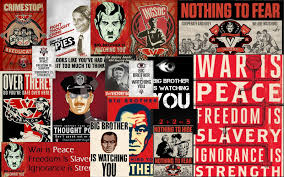
This paper is an
attempt to show George Orwell as an outstanding writer whose political ideology
and romantic notion deserve special mention and appreciation. It also shows how
he has left behind for his generation something significant and remarkable. He
was very intelligent and very simple, immediately explored social and political
issues and dealt with them detachment and clarity.
Key words: political, humanistic, human civilization, communism, Nazism
VOL- 5, ISSUE- 2, PUNE RESEARCH WORLD (ISSN 2455-359X) JIF 3.02
5.2.18 WORLD
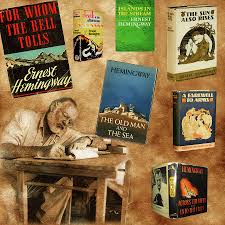
This paper attempts
to reveal how the way of morality in the Ernest Hemingway’s tragic and haunted.
A particular look at the story lines of his novels reveals the fact that the
main themes of his novels are generally conceived with the idea of struggle. It
could be an old man’s struggle against nature or it could be a person’s
struggle against established moral ethics.
Key words: hunting, fishing, bull-fighting, war, human nature.
VOL- 5, ISSUE- 2, PUNE RESEARCH WORLD (ISSN 2455-359X) JIF 3.02
5.2.19 WORLD
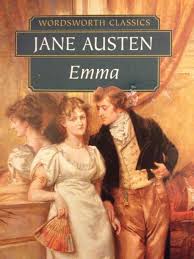
This paper aims at bringing out the literary
forte of Jane Austin in her description of characters, manners, attitude, human
sentiments, relationship, feminine sensibility, marital relationship in terms
of married life love relationship and family ties.
Keywords: marriage , human sentiment, love, family, art, relationship.
VOL- 5, ISSUE- 2, PUNE RESEARCH WORLD (ISSN 2455-359X) JIF 3.02
5.2.20 WORLD
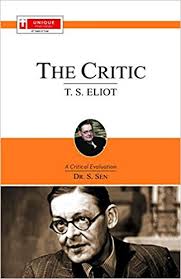
This research article at the outset ardently
probes on the newfangled and multi-faceted proficient writer T.S.Eliot, who is
an erudite 20th century modern writer and leading modern critic, who paved for
the constructive contribution to literature and criticism. This research article keenly dives deeply
into the thoughts of T.S.Eliot in order to explore the critical terms, ideas
and notions that he invoked to the realm of literary criticism. And finally,
this research article examines critical works of T.S.Eliot and insists the fact
that Eliot had carved a new way and direction in the field of literary theory
and criticism.
Key Words: criticism, tradition, past,
present, sensibility, association, disassociation, unification, life, critic, correlative
VOL- 5, ISSUE- 2, PUNE RESEARCH WORLD (ISSN 2455-359X) JIF 3.02
5.2.1 वर्ल्ड
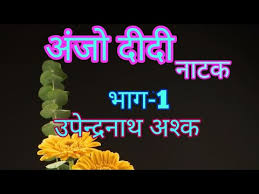
उपेन्द्रनाथ ‘ अश्क ’ ने साहित्य-लेखन की शुरुआत उर्दू से की थी , परंतु
बाद में मुंशी प्रेमचंद की सलाह से हिन्दी में लिखना शुरू किया | वे बहुआयामी प्रतिभा के धनी थे | उन्होंने साहित्य
की प्राय: सभी विधाओं में अपनी कलम चलायी है | वे मँजे हुए
कथाकार के रूप में विशेष प्रसिद्ध हुए हैं , पर साथ ही
उन्होंने नाटक , एकांकी , काव्य , संस्मरण , आलोचना आदि पर भी अधिकार के साथ लिखा है | ‘लौटता हुआ दिन ’,‘ बड़े
खिलाड़ी ’,‘ पैंतरे ’,‘ आदि मार्ग ’, ‘ कैद ’,‘ उड़ान ’,‘ छ्ठा बेटा ’,‘ स्वर्ग की झलक ’,‘ अंजो दीदी ’,‘ अलग-अलग रास्ते ’,‘ जय-पराजय ’,‘ अंधी गली ’,‘
विद्रोही ’ आदि अश्कजी के प्रसिद्ध नाटक हैं |
VOL- 5, ISSUE- 2, PUNE RESEARCH WORLD (ISSN 2455-359X) JIF 3.02
5.2.2 वर्ल्ड

dksjksuk
egkekjhyk fu;af=r Bso.;klkBh txkrhy vusd jk"Vªkauh VkGscanh dsyh- ;k VkGscanheqGs osxkus /kko.kkjs tx ,dne
FkkacY;kxr >kys- Hkkjrkrgh VkGscanh
VII;k VII;kus ok<r xsyh- vkti;±r
toGikl ikp VIis VkGscanhus xkBys vkgsr-
ekpZ egh.;kP;k “ksoVP;k vkBoMîkkiklwu loZ “kkGk] egkfo|ky;s] fo|kihB o
brj “kS{kf.kd laLFkkaps dkedkt can >kys- “kkGkarhy fo|kFkhZ o egkfo|ky;krhy f”k{kd l|k ?kjkr canhLr Lo:ikr vlY;klkj[ks
vkgsr- f”k{kd fo|kF;k±ph pky.kkjh izR;{k
vkarjØh;k [kaMhr >kysyh vkgs-
dksjksuk egkekjhP;k izdksikrwu dsaOgk ckgsj iMw\ ákckcr loZ= vfuf”prrk vkgs- T;k Hkkxkr dksjksukpk izknqHkkZo deh vkgs R;k
Hkkxkrhy VkGscanhr f”kfFkyrk vk.k.;kps dk;Z dsaæ ljdkj o lacaf/kr jkT; ljdkjs
djhr vkgs- ijarq vtwugh foekulsok] jsYoslsok]
esVªks okgrwd lq: >kysyh ukghr-
Hkkjrkrhy toGikil 15 yk[kkis{kk “kkGk o 50 gtkjkais{kk tkLr mPp
“kS{kf.kd laLFkk dksjksuk egkekjheqGs izHkkohr >kysY;k vkgsr-
VOL- 5, ISSUE- 2, PUNE RESEARCH WORLD (ISSN 2455-359X) JIF 3.02
5.2.3 वर्ल्ड

dksfon
& 19 eqGs egkfo|ky;hu fo|kF;k±P;k eukr fuekZ.k >kysY;k
Hkfo";fo"k;d 'kS{kf.kd fparkps izek.k Qkj eksBîkk izek.kkoj vk<Gwu
;srs- izR;sd fo|kFkhZ toGikl fparkxzLr
vkgs- iq<s dk; gks.kkj gs fuf'pr
ulY;keqGs vkf.k ;ksX; 'kS{kf.kd /kksj.kkaP;k vHkkokeqGs egkfo|ky;hu fo|kFkhZ
vkt Hkfo";kckcr fparkxzLr vkgs-
ifj{kk gks.kkj fdaok ukgh gs lq)k dks.khgh Bkei.ks lkaxw 'kdr ukgh- dsaUæ vkf.k jkT; ljdkjP;k osxosxGîkk
/kksj.kkaeqGs fo|kF;k±P;k fparke/;s Hkjp iMyh vkgs vls fnlwu ;srs-
dG 'kCn
%& 'kS{kf.kd fpark] egkfo|ky;hu fo|kFkhZ
VOL- 5, ISSUE- 2, PUNE RESEARCH WORLD (ISSN 2455-359X) JIF 3.02
5.2.4 वर्ल्ड
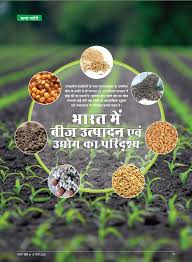
21 twu dks varjkZ’Vªh; ;ksx fnol cuk;k tkrk gS
ftldh mRifRr ;kuh ;ksx dk tUe laLd`r ds ;qt “kCn ls gqvk gS ftldk vFkZ gS &
Lo;a dk loZJs’B Lo;a ds lkFk feyuA iartfy ds vuqlkj ;ksx dk vFkZ gS] eu dks
fu;a=.k esa j[kukA bldh dbZ “kkjhfjd eqnzk,a gSa vkSj vklu Hkh gSA ckS) /keZ ds
vfLrRo ds lkFk gh 500 bZ0iw0 esa ;ksx dk tUe ekuk tkrk gSA f”kdkxks lekjksg esa
;ksx ds ckjs esa Lokeh foosdkuUn us Hkh o.kZu fd;k gSA ;ksx dk o.kZu _Xosn esa
feyrk gSA iartfy dks vk/kqfud Hkkjr dk firkekg dgk tkrk gS ftUgksus ;ksx lw= dh
LFkkiuk dh FkhA ;gk¡ ;ksx lw= dk rkRi;Z gS QkWewy@rarq@/kkxkA varjkZ’Vªh; ;ksx
fnol dks 21 twu 2015 fxuht cqd vkWQ fjdkMZ esa 21 twu 2015 dks ntZ fd;k tk pqdk
gSA Hkkjrh; laLd`fr iwjs fo”o esa fo[;kr gS] tks 5000 o’kZ iqjkuh gS] ftlesa vyx&vyx
/keZ] ijEijk] Hkkstu] oL= bR;kfn dh fo”ks’k ekU;rk gS] ftlesa f”k’Vkpkj] rgtho]
lH; laokn] /kkfeZd laLFkk] ekU;rk,sa ,oa ewy bR;kfn lEefyr gSA gjsd dh vyx&vyx
“kSyh gSA ;g Hkkjrh; laLd`fr dk fgLlk gSA feVVh ds orZuksa dk iz;ksx] lekjksg
esa <kd] dey bR;kfn ls fufeZr iRrksa ds nksuksa ,o iRryksa dk iz;ksx djuk vkfn
vkt ge ;kn djsa rks Hkkjrh; laLd`r ij u fdlh ok;jl dk izHkko iM+ ldrk vkSj u
fdlh vkØe.k dkA dksjksuk dk izHkko LVhy] ydM+h] IykLVhd] diM+s bR;kfn ij iM+
ldrk gS] ijarq feVVh ds dqYyM+] eVdk rFkk vU; orZuksa dh ckr djsa rks bu ij
fdlh ok;jl dk izHkko dHkh ugha iM+ ldrk budk dksbZ tokc ugha gS dqYyM+ dh pk;]
dqYyM+ esa ngh] eVds dk ikuh bR;kfn uke ls tkus tkrs gSaA Ng eghus igys ;g ckr
ppkZ esa Fkh fd IykLVhd ds di esa pk; fujarj ihus ls IykLVhd ls gkfu dkjd
jkl;fud inkFkZ xeZ fyD;qM ds lkFk isV esa pys tkrs gaSA blls dSalj dk [krjk gks
tkrk gS LVkbfjax vkSjxsfud ftldk jkl;fud lw= C6H5Ch=CH2
gSA